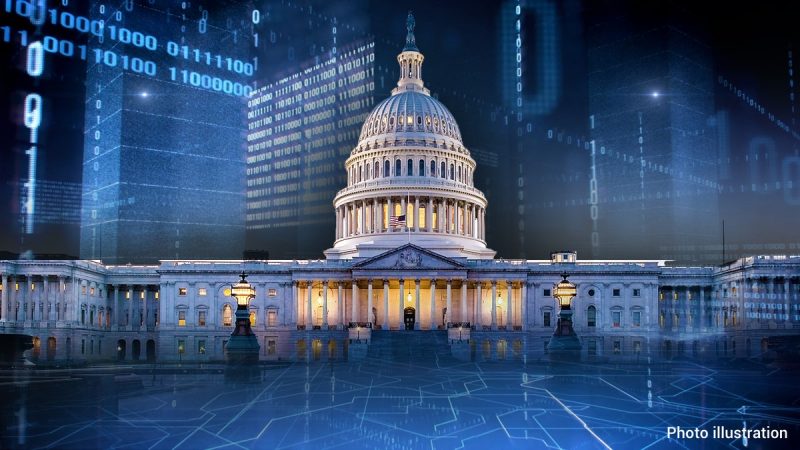After more than two decades of serving in the U.S. Navy and building government systems, I have witnessed firsthand how millions of dedicated Americans work every day in service of their fellow citizens and the security of our democracy. I have also seen both the immense potential — and frustrating inertia — that plagues public service. An unrealized opportunity exists to connect the U.S. government’s critical missions with the transformative power of commercial technology.
Consider this: of the world’s 10 largest companies by market capitalization, a staggering eight are American founded. This is no accident; it is a direct result of our nation’s unparalleled entrepreneurial spirit. The critical question, however, is whether our own government is prepared to harness this strategic asset.
Instead of tapping this engine of innovation, the U.S. government is held captive by its outdated processes. Entrenched legacy vendors have dug their claws in, and this has led to a general resistance to change. As the saying goes, ‘it takes a while to turn a big ship around.’
That rings true with actual warships and aircraft carriers, but it also applies to how government agencies resist adopting new tools that improve collaboration, efficiency and security. Instead, the U.S. government and its outdated procurement processes cling to existing technology platforms, such as Microsoft’s suite of products that have been compromised time and again by China, which also happens to be one of the company’s most significant business partners.
Breaking the shackles of ‘vendor lock-in’ — where the government becomes overly reliant on specific vendors even if they underperform — is crucial for fostering a new era of innovation that benefits America. When a company or product fails to perform well in the commercial sector, it’s terminated immediately.
In the public sector, the company is usually allowed to see out their multi-year contracts and when it’s finally time to negotiate a renewal, all is forgotten. A more competitive public sector landscape, welcoming innovators and startups, can provide fresh perspectives, specialized solutions, and the speed to address rapidly evolving challenges.
This is not a unique approach. Other nations are adopting this model, attempting to gain an edge over America. For example, China launched a program in 2023, with 39 partners, including Alibaba Cloud and Baidu, to advance computing power and AI.
Russia subsidizes companies implementing digital transformation; and Iran, despite sanctions, is investing significantly in AI research and building a sovereign AI ecosystem. Our adversaries recognize that commercial tools drive rapid progress and are actively breaking down barriers to catch up to American AI leadership.
There are understandable reasons for hesitancy. For years, Silicon Valley has been closely associated with the ‘move fast and break things’ mantra, while the U.S. government has looked on with both envy (of the speed and efficiency) and concern (over potential impacts to its services). However, learning from the commercial mindset of agility and a relentless drive for improvement will help it to serve the American public better. The benefits? Reduced waste, greater efficiency and better taxpayer value.
Nowhere is this approach more critical than in national security. The threats America faces are constantly evolving and leveraging emerging technology to do so. Maintaining our edge requires more than just incremental improvements; it demands continuous access to cutting-edge capabilities.
Leveraging the R&D engines of American commercial innovation — in areas like AI, cybersecurity, data analytics and resilient infrastructure — is not just advantageous; it’s essential. If Washington fails to leverage this homegrown ingenuity, it does so at our national peril, especially as our adversaries work tirelessly to do just that.
Other nations are adopting this model, attempting to gain an edge over America. For example, China launched a program in 2023, with 39 partners, including Alibaba Cloud and Baidu, to advance computing power and AI.
Government agencies tasked with everything from defending the nation to delivering health services need to have immediate access to the latest advancements in AI and data analytics, and they can only do so by leveraging powerful commercial tools with a platform for continuous improvement — an asset for national security and public service.
AI could be used to accelerate some of the government’s most notorious backlogs, such as the millions of immigration court cases, the accumulation in environmental reviews for energy projects, and pileups in programs like Social Security or Veterans Affairs healthcare. AI can analyze data at lightning speed, helping federal agencies and their partners deliver on mission-critical work at an accelerated pace.
The urgent need for a more agile, efficient, innovative and secure government is too significant to ignore. This is a pivotal moment. By embracing the discipline, accountability, and innovative spirit of the commercial sector, the U.S. government can unlock new levels of performance and effectiveness. Change is hard. But as adversaries gain on America — or worse, overtake us — change is mandatory.

